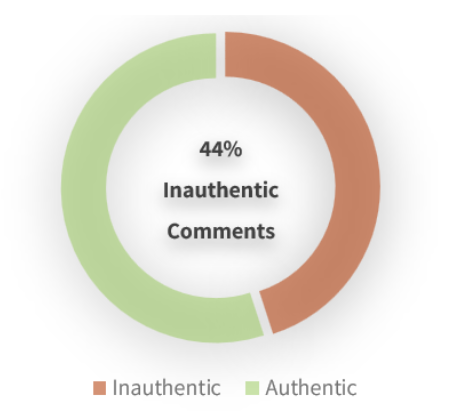Football (or if you’re American, soccer) is the most popular sport in the world. And its premier competition, the World Cup, dominates conversations across all social networks when it is held every four years.
But right next to the excitement and expectation that flooded social media, a protest started brewing, focusing on Qatar, the nation hosting this year’s games. Social conversations discussed the deaths of over 6,500 construction workers as well as the alleged cover ups.. Other discussions revolved around human rights issues in Qatar, specifically the rights (or lack thereof) of the LGBTQ community. Teams that tried to show support for their LGBTQ fans were threatened with a ban.
The discourse on social media, incited and encouraged by items and reports on news sites, did not bode well for the hosting country.
Yet, come November, with the games just around the corner, protests and complaints against Qatar did not exactly die out – rather, they were dissolved into the growing ocean of excited and enthusiastic fans.
The problem? Some of those fans – the ones driving the conversations more than any others – were, in fact, not real.
When Fake Fans Fan Out
Two hashtags regarding the World Cup started trending heavily on social towards the end of October: #qwc2022 (Qatar World Cup) and #FifaWorldCup. During November, those hashtags trended even higher: #qwc2022 trended 972% higher than in the month prior, and #FifaWorldCup showed a trend increase of 5,925% (!)
While this might seem a reasonable or even an obvious course of events for any upcoming international sports tournament in its final countdown days, Cyabra’s analysis discovered that many posts that used those trending hashtags showed an incredibly positive sentiment and enthusiasm. Most of them not only avoided criticizing Qatar, but actually showed no criticism towards anything in the World Cup (and if no criticism at all looks natural, you must not know many football fans!)
In fact, posts, replies and shares that showed a significantly positive sentiment (using both words and emojis) were not discussing football at all – they were mainly encouraging fans all over the world to participate in the World Cup.
Do Androids Dream of Electric Football?
Cyabra’s analysis identified that 19% of the profiles that participated in the online discourse were inauthentic profiles. Just to give some context, the number of fake profiles in similarly popular international events is usually 5%-7%.
If 19% still doesn’t seem like much, here’s the real issue: fake accounts typically display much higher engagement in online debates when compared to real profiles. Those 19% fake profiles were responsible for 43% of all posts and comments in the conversation.

Interestingly, 29% of the overall inauthentic profiles were located in Bangladesh, which was also home for most of the workers who lost their lives during the World Cup construction work in Qatar. Given Bangladesh’s economy, those two facts are less contradictory than they appear.
When we think about bots, most of us imagine negativity: disinformation spreaders, election meddlers. Thousands of fake accounts bought for a harmful purpose, to disperse confusion and mistrust or to change public opinions on major issues.
However, as we’ve witnessed in the case of the Qatar World Cup games, it’s just as easy to use bots to spread positive content, to drown criticism and protest, and to create a false, efficient presentation of support and enthusiasm. Bots might not win the actual games for Qatar, but they definitely helped the country win public opinion on social media, and sometimes, an impressive goal is much more important than winning the championship.
Wondering if the Referee is a Bot?
They aren’t. However, Cyabra can help you uncover fake profiles and fake campaigns affecting your brand.
Cyabra measures impact and authenticity in social networks. We offer global brands, corporations, and government agencies the ability to understand narratives, discover trends, and reach real audiences. Contact us to learn more!


